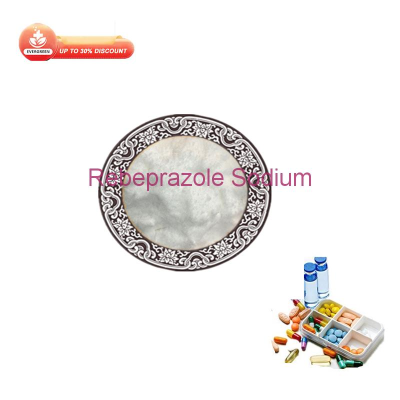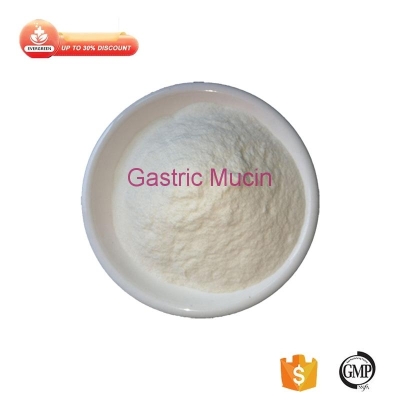-
Categories
-
Pharmaceutical Intermediates
-
Active Pharmaceutical Ingredients
-
Food Additives
- Industrial Coatings
- Agrochemicals
- Dyes and Pigments
- Surfactant
- Flavors and Fragrances
- Chemical Reagents
- Catalyst and Auxiliary
- Natural Products
- Inorganic Chemistry
-
Organic Chemistry
-
Biochemical Engineering
- Analytical Chemistry
- Cosmetic Ingredient
-
Pharmaceutical Intermediates
Promotion
ECHEMI Mall
Wholesale
Weekly Price
Exhibition
News
-
Trade Service
For medical professionals only
Ten classes of drugs, a summary
of the article | Ge Jinhua
Constipation refers to a clinical symptom (group) manifested by decreased frequency of bowel movements, dry and hard stools, and/or difficulty
defecating.
Reduced bowel movements are defined as < 3 bowel<b11> movements per week.
Dysdefecation includes laborious bowel movements, difficulty in passing bowels, incomplete bowel movements, time-consuming bowel movements, and the need for manual defecation [1].
Clinically, constipation is generally divided into functional and organic categories, functional constipation has a variety of causes, some of which are drug-related, called "drug-induced constipation"
.
Drug-induced constipation refers to symptoms such as reduced bowel movements due to taking medications, or poor bowel movements, difficulty straining, and dry and low stools
.
Let's look at this example first[2]:
-1-
Case study
The patient, male, 85 years old, has a history of hypertension for more than 30 years, long-term taking nifedipine sustained-release tablets + hydrochlorothiazide combination therapy, supplemented by healthy lifestyle intervention, blood pressure has been stable control to meet the standard, physical condition is good
.
However, in the past 10 years, with the change of lifestyle and age, it has become more and more difficult to stool, but every day after getting up and walking indoors, the intention to go to the toilet immediately and defecate
smoothly.
Half a month ago, after getting up early in the morning to move, but there was no intention to defecate, sat on the toilet to do my best, suddenly felt severe pain in the precordial area, and could not move
.
After being helped by his family to bed, he still had pain, immediately dialed 120, and the ambulance took him to the emergency department of the hospital
.
.
Laboratory tests show that the creatine kinase isoenzyme is elevated to 180 U/L
.
Clinical diagnosis: acute myocardial infarction
.
Coronary angiography, stent mounting of vessels found in the main branch of the left anterior wall, and transfer to the cardiology ward
after surgery.
After two weeks of continued treatment and observation, a comprehensive examination was performed, and the index returned to normal and
discharged.
-2-Case study
The occurrence of acute myocardial infarction in patients is caused by hypertension and coronary heart disease, but the cause of the trigger should be attributed to constipation
.
Constipation is one of the important causes of myocardial infarction in the
elderly.
Analysis of the cause of constipation in this patient, in addition to insufficient stool push with age, may also be related to
the drugs he usually takes.
Follow-up medical history, the patient took diazepam 10mg every night because of long-term insomnia; Because of chronic lumbar disc herniated pain, take tramadol 0.
2 g
before bedtime.
These drugs may aggravate the occurrence and progression of constipation to varying degrees, called drug-induced constipation
.
So, which drugs can cause drug-induced constipation? How is it diagnosed? How can it be prevented and treated?
Please read on:
Ten classes of drugs that can cause constipation
1.
Anticholinergics
Drugs: scopolamine, scopolamine, atropine, belladonna
.
Mechanism: Anticholinergics weaken intestinal peristalsis, prolong the intestinal transit time, and easily cause constipation
.
Antipsychotics, antidepressants and anxiolytics
Drugs: antipsychotics (chlorpromazine, perphenazine, clozapine), antidepressants (amitriptyline, doxepine), anxiolytics (diazepam, etc.
).
Mechanism: These three classes of drugs interfere with the body's normal acetylcholine metabolism, inhibit normal autonomic activity in the intestine, slow down the forward advancement of intestinal contents, slow down gastrointestinal peristalsis, prolong its residence time in the distal intestine, and cause constipation
.
.
Dopamine receptor agonists
Drug: bromocriptine
.
Mechanism: Bromocriptine inhibits the release of intestinal acetylcholine, weakens intestinal motility and causes constipation
.
.
Contains cationic preparations
Drugs: aluminum (aluminum hydroxide, sucralfate and so on), calcium (calcium carbonate), iron (ferrous sulfate), bismuth (bismuth citrate) and barium (barium sulfate).
Mechanism: Aluminum has an astringent effect, long-term use can cause constipation; After oral administration of calcium carbonate, it reacts with gastric acid to produce carbon dioxide and calcium chloride, the latter can form calcium carbonate and calcium phosphate in alkaline intestinal fluid, which are difficult to absorb and inhibit intestinal peristalsis, which may cause constipation; Iron can be combined with hydrogen sulfide in the intestine to form iron sulfide, hydrogen sulfide in the intestine can stimulate intestinal peristalsis, hydrogen sulfide is reduced, intestinal peristalsis is weakened and constipation
.
Opioids
Drugs: morphine, tramadol, fentanyl, codeine, oxycodone, etc
.
Mechanism: Opioids act directly on the smooth muscles of the gastrointestinal tract, weakening longitudinal muscle tone, resulting in increased intestinal segmentation and slowed
peristalsis.
In addition, morphine reduces intestinal secretion, prompts increased intestinal water absorption, causes stool to dry out, and aggravates constipation
.
.
Antihypertensive drugs
Drugs: calcium channel blockers (nifedipine, verapamil, etc.
), diuretics (hydrochlorothiazide, furosemide).
Mechanism: calcium channel blockers can reduce the smooth muscle tone of the intestinal wall, delay intestinal peristalsis and cause constipation; Diuretics reduce water absorption during fecal formation, leading to constipation
.
.
Vinblastine antitumor drugs
Drugs: vincristine, vincristine, vinorebin, etc
.
Mechanism: Vinblastine antitumor drugs have certain neurotoxic effects, and after long-term use, it will cause neurological disorders, damage the autonomic nerves of the intestinal wall, and lead to constipation
.
.
Stimulant laxatives
Medications: senna, aloe vera, rhubarb, cassia seed
.
Mechanism: Long-term use of stimulant laxatives leads to a decrease in colonic tone and thus weakness in bowel movements
.
NSAIDs
Representative drugs: ibuprofen, indomethacin
.
Mechanism: NSAIDs inhibit cyclooxygenase, increase gastric acid secretion, decrease gastric mucus secretion, and weaken
the physiological effect of gastrointestinal smooth muscle contraction.
antihistamines
Drugs: diphenhydramine, chlorpheniramine, cyproheptadine
.
.
-3- Diagnosis of drug-induced constipation
1.
Have a clear history
of taking the above constipation-prone drugs.
2.
After medication, the frequency of bowel movements is reduced or the bowel habits are significantly delayed, and constipation caused by intestinal lesions, systemic diseases or neuropathy is excluded
.
Stop the drug, cooperate with symptomatic treatment can be relieved, and then use the drug and constipation
.
-4- Treatment of drug-induced constipation
1.
Replacement drugs: Once drug-induced constipation is suspected, other drugs
can be changed under the guidance of a physician.
Among the antihypertensive drugs used in this patient, nifedipine and hydrochlorothiazide are drugs that may cause constipation; Therefore, it is possible to adjust the treatment regimen to angiotensin-converting enzyme inhibitors/angiotensin II receptor antagonists (ACEI/ARB) combined with β receptor blockers to reduce blood pressure, such as perindopril + bisoprolol, which not only helps to improve myocardial ischemia, but also solves the problem of
constipation.
The diazepam used by patients is also a drug that can cause constipation, and can be switched to a similar short-acting preparation, eszolam, which can not only help sleep at night, but also because of its short half-life, it will not affect the desire
to defecate during the day.
Tramadol taken by patients because of pain caused by herniated disc compression nerves is itself an opioid and is prone to drug resistance and addiction, and should be gradually
stopped.
Peripheral nerve pain inhibitors such as gabapentin or pregabalin may be taken orally
.
2.
Drug treatment: If you cannot change to other drugs, you need to use laxative drugs with higher safety, such as lactulose oral liquid, polyethylene glycol, etc
.
Long-term opioid treatment is usually indicated with prophylactic laxatives [3-7].
Lactulose oral solution
Mainly used for chronic or habitual constipation
.
In addition to the effect of osmotic laxative, lactulose also has the effect of prebiotics, which plays a therapeutic role
by regulating the balance of intestinal flora.
Note: Abdominal distension may occur in the first few days of treatment, usually disappear with continued treatment, and abdominal pain and diarrhea may occur when the dose is higher than the recommended dose, and the dose
should be reduced.
Long-term use of large doses leads to diarrhea, and patients may have electrolyte abnormalities and need to reduce the dose
.
It is contraindicated in galactosemia, intestinal obstruction, and acute abdomen [1,3].
Polyethylene glycol 4000 powder
Suitable for symptomatic treatment
of constipation in adults and children aged ≥8 years.
Can be used in patients
with diabetes or those who require a sugar-free diet.
Note: Diarrhea may occur with large doses of medication, a small number of abdominal distention, abdominal pain, nausea and other adverse reactions, which can disappear within 24~48 hours of discontinuation, and then reduce the dose to continue treatment
.
Contraindicated in patients with organic disorders of the small intestine or colon, undiagnosed abdominal pain, drug allergy, and fructose intolerance [1,3].
Scan the QR code to directly view more clinical knowledge of gastroenterology and hepatology
👇👇👇 References: [1] Chinese Medical Association, Journal of Chinese Medical Association, Gastroenterology Branch of Chinese Medical Association, General Practice Branch of Chinese Medical Association, Editorial Board of Chinese Journal of General Practitioners, Expert Group for Writing Guidelines for Primary Diagnosis and Treatment of Digestive Diseases.Guidelines for the primary diagnosis and treatment of chronic constipation(2019)[J].
Chinese Journal of General Practitioners,2020,19(12):1100-1107.
)
[2] Darren.
There are many underlying diseases in the elderly, beware of drug-induced constipation[J].
Physician Online,2021,11(16):27-28.
[3] Functional Gastroenterology Collaborative Group, Gastrointestinal Dynamics Group, Gastroenterology Branch of Chinese Medical Association.
Chinese expert consensus opinion on chronic constipation (2019, Guangzhou)[J].
Chinese Journal of Digestion,2019,39(9):577-598.
) [4] Geriatrics Branch of Chinese Medical Association, Editorial Board of Chinese Journal of Geriatrics.
Expert consensus on the evaluation and management of chronic constipation in the elderly[J].
Chinese Journal of Geriatrics,2017,36(4):371-381.
) [5] Xia Yu, Huang Wanzhong, Yu Xiaoli, et al.
Efficacy of prucalopride combined with lactulose in the treatment of opioid-induced constipation in patients with cancer pain[J].
Northern Pharmacy,2016,13(10):94-95.
) [6] ZHAO Jun.
Effect of lactulose combined with mosapride in the treatment of chronic constipation in the elderly[J].
Journal of Clinical Rational Drug Use,2020,13(8):96-97.
) [7] ZHU Huiqiong, ZUO Xiaohua, ZHANG Yuan.
A retrospective study of lactulose combined with Simo decoction oral liquid in the treatment of senile constipation[J].
Shanxi Medical Journal,2020,49(9):1067-1069.
)
This article reviewed: Yang Health Deputy Chief Physician of Jingdezhen Second People's Hospital Responsible Editor: Wen Jiaxin
- End -* "Medical Community" strives to publish professional and reliable content, but does not make a commitment to the accuracy of the content; Relevant parties are requested to check
separately when adopting or using it as a basis for decision-making.
Call for papers: Medical Digestive Liver Disease Channel welcomes your submissions! Click the link below or scan the QR code to submit: https://titan.
yishengzhan.
cn/#/public_contribution, please fill in the real information according to the submission interface
↓↓↓ Click "Read Original" to learn more clinical skills







